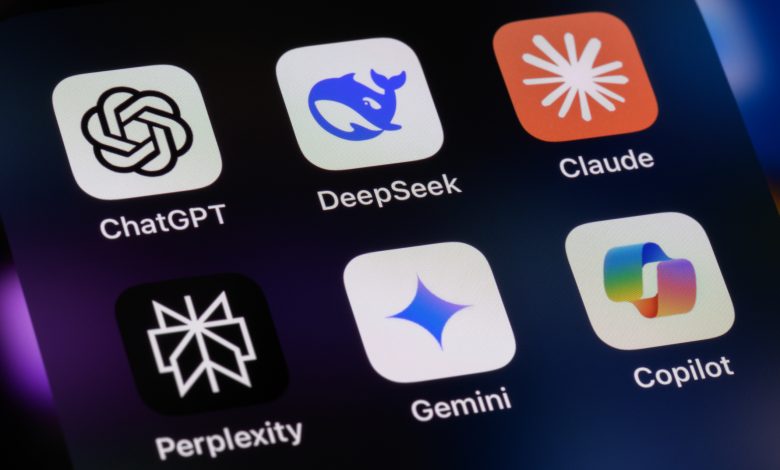
The rise of AI-powered platforms marks a turning point for brands. Simply ranking in search results won’t be enough. The real opportunity will be in becoming part of the platform itself.
The Early Days of AI Commerce
E-commerce integration into AI platforms is only the beginning.
For decades, the process was simple:
- Use a search engine to answer a question
- See ads, then a list of relevant websites
- Click through to learn more or make a purchase
Later, Google and Bing introduced Flights and Shopping features, but purchases still required leaving the search engine for the brand’s website.
That model is disappearing.
Last year, Perplexity partnered with PayPal, enabling in-app purchases for its Pro users. In May, the company teased travel bookings and event ticket sales, all without leaving the app.
In April, Shopify quietly integrated with OpenAI, signaling that product browsing, comparison, and purchase flows may soon live directly inside ChatGPT. That same month, Microsoft launched its Copilot Merchant Program, letting merchants embed product catalogs into Copilot so users could receive personalized recommendations, price alerts, and complete transactions in one place.
It’s likely only a matter of time before OpenAI unveils its own integrated shopping experience, possibly before this holiday season, creating a high-stakes test for commerce within AI platforms. If it succeeds, it will mark not just another retail innovation but the start of a permanent behavioral shift.
The Next Wave: Beyond Shopping
For years, businesses have leveraged AI internally to work smarter and faster, from law firms automating research to McDonald’s testing AI-powered drive-thrus.
At the same time, AI has upended marketing. Zero-click searches are rising as users find answers directly within Google’s AI Overviews, Microsoft Copilot, ChatGPT, or Perplexity. We’re advising brands to treat large language models (LLMs) as a new audience, one that processes and ranks information differently than humans do, so their sites aren’t just sources but cited authorities.
But citations and backlinks alone won’t be enough. As consumers grow accustomed to shopping, booking, and transacting within AI platforms, clicking out to a website will feel like unnecessary friction.
Today, someone asking ChatGPT, “Find me a lawyer in Topeka specializing in car accidents without injuries,” gets a list of links. Tomorrow, they’ll expect to schedule the consultation right there in the chat. And the same expectation will quickly extend to accountants, doctors, tutors, and travel agents. For many industries, this will feel less like an incremental step and more like a wholesale rewiring of how customer journeys begin and end.
The Future of AI Integrations
The next phase won’t be about earning citations. It will be about embedding directly into the platform experience.
Imagine being able to say:
- “Find and reserve the latest John Grisham novel at my local library.” AI checks availability, places the hold, and sends reminders.
- “Plan the perfect date night.” AI books dinner, a ride-share, and a hotel room, all in one seamless flow.
- “Show me vegan tacos under $15 nearby.” AI suggests options, handles payment, and arranges delivery.
- “Send my mom a zero-waste birthday gift under $40 that ships today.” AI curates options, checks out, and confirms shipping.
- “Schedule a call with my financial advisor next week.” AI books the slot and shares the agenda inside the chat.
- “Help me prepare for an investor presentation.” AI could pull financial data, draft slides, and even generate talking points, all without leaving the platform.
These examples hint at how quickly AI platforms will evolve from “answer engines” to “action engines.” Once consumers experience frictionless flows like these, expectations will reset, and brands that remain outside the platform ecosystem will feel increasingly invisible.
Don’t Leave Opportunities on the Table
Business leaders might wonder, “Why should we invest in this? We have a website, we’ve optimized for answer engines, and we’re still getting traffic from traditional search.”
Think back to 2008 when Apple launched the App Store. At launch, there were just 500 apps. Within a year, there were more than 50,000. The companies that moved quickly didn’t just capture downloads, they built lasting advantages because they understood the shift: customers weren’t just browsing websites anymore, they were living inside new digital ecosystems.
AI platforms represent the same kind of shift. Yet businesses have been slower to establish a presence even as user numbers dwarf those early app adoption figures. Perplexity AI has over 22 million active users, ChatGPT has surged to 700 million weekly active users, Microsoft Copilot has 33 million, and Google’s Gemini app reaches 450 million monthly users. That’s hundreds of millions of potential interactions happening inside AI platforms, which are opportunities many brands are leaving entirely to chance.
It’s time for businesses to change their mindsets, to get their AI integration teams not just strategizing how to incorporate AI into internal processes, but how to become a part of the platform.
Right now, brands are focused on getting mentioned by AI systems. Soon, the real opportunity will be in becoming part of them.
Is your brand site AI-search optimized? Find out with this complimentary Answer Engine Audit by IDX. In less than a minute, we’ll analyze multiple key pages and give you site-wide optimization insights for AI-powered search engines. Don’t lose visibility to your competitors – make sure your site is ready for the AI era.
About the Author
Crispin Beale is the Worldwide CEO of IDX, a leading global strategic communications and performance marketing agency. Headquartered in London, IDX has offices around the world, including New York, Phoenix, Helsinki and Vadodara, India. Working with more than 1,600 clients across sectors, IDX combines deep industry knowledge with a data-first mindset to help ambitious brands thrive in complex, fast-moving markets. Visit http://www.idx.inc to learn more.





